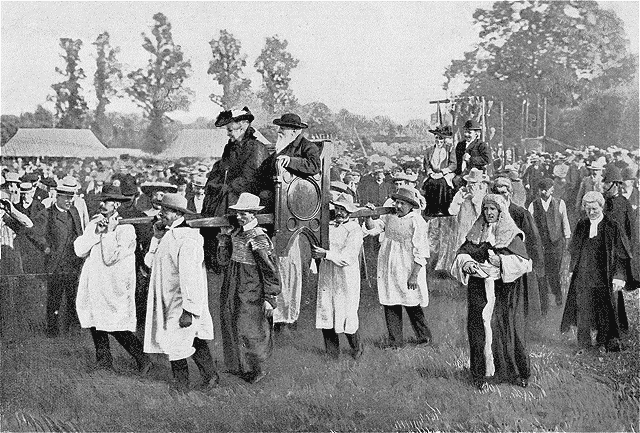
The Essex market town of Great Dunmow keeps alive a curious tradition: It awards a flitch of bacon to any married couple who can swear after a year and a day that they have not regretted their marriage. The custom goes back to the 13th century and perhaps even earlier; Chaucer mentions it as a well-established tradition. A similar ceremony used to be held at Wychnoure — two neighbors had to hear this oath and agree it was true:
Hear ye, Sir Philip de Somervile, lord of Whichenoure, maintainer and giver of this Bacon, that I, (husband), syth I wedded (wife), my wyfe, and syth I had her in my kepyng and at wylle, by a Yere and a Day after our Marryage, I would not have changed for none other, farer ne fowler, richer ne powrer, ne for none other descended of gretter lynage, sleeping ne waking, at noo time; and if the said (wife) were sole, and I sole, I would take her to be my wyfe before all the wymen of the worlde, of what condytions soevere they be, good or evyle, as helpe me God, and his Seyntys, and this flesh, and all fleshes.
Sadly, almost no one gets the bacon. Horace Walpole noted in 1760 that the Whichnoure flitch had not been claimed in 30 years, and records show that between 1444 and 1751 only six couples managed to win the Dunmow flitch.
But it’s not too late to try. The tradition had nearly died out when novelist William Harrison Ainsworth revived it with The Flitch of Bacon in 1854, and Dunmow has kept it alive since then. The modern trials are held each leap year, so the next one is in 2020. You’ll be cross-examined, and the case will be decided by a jury. But win or lose you get to visit Dunmow. As Walpole wrote, “If you love a prospect, or bacon, you will certainly come hither.”
